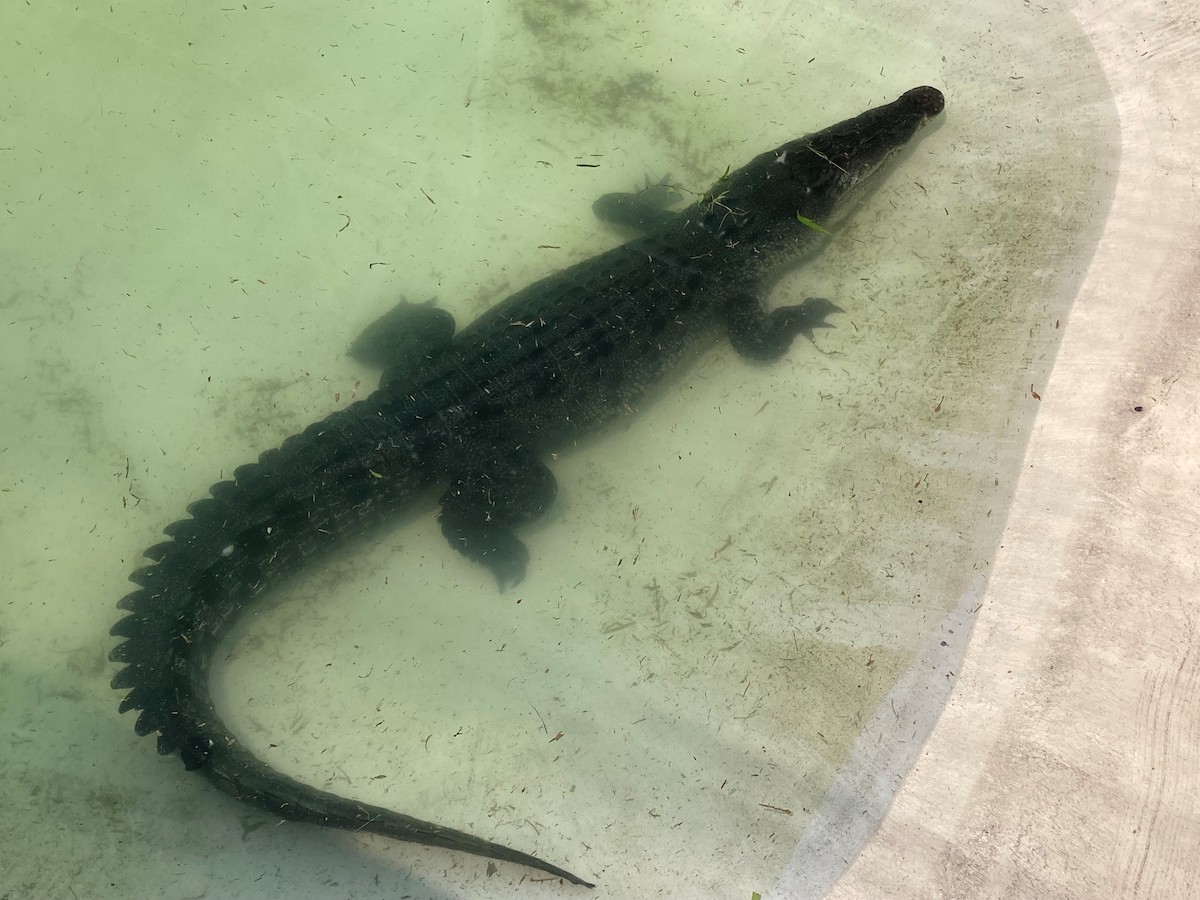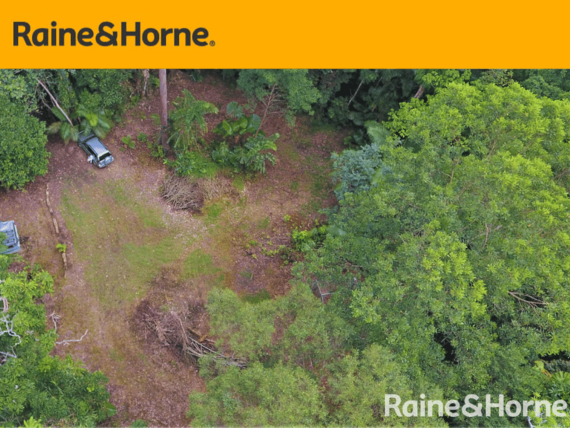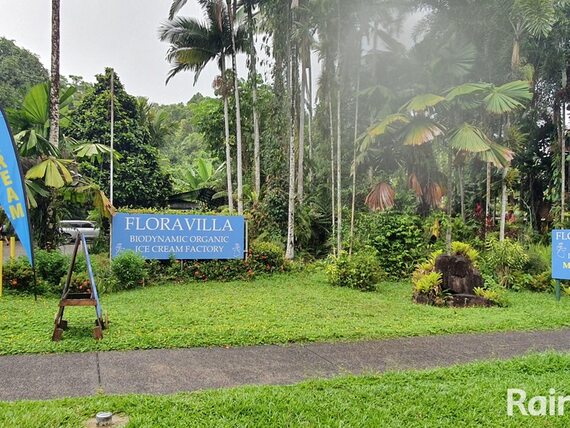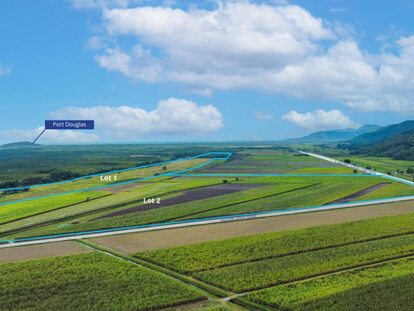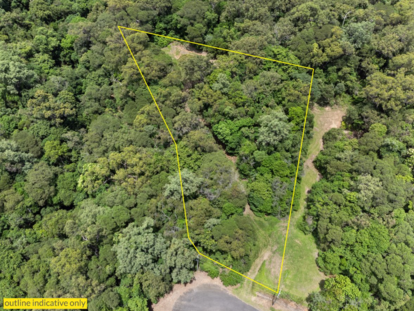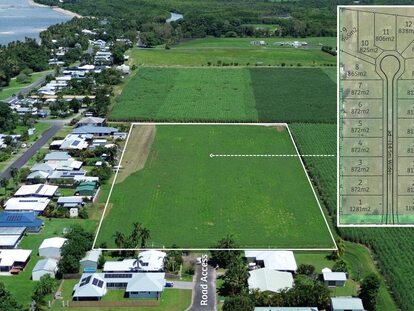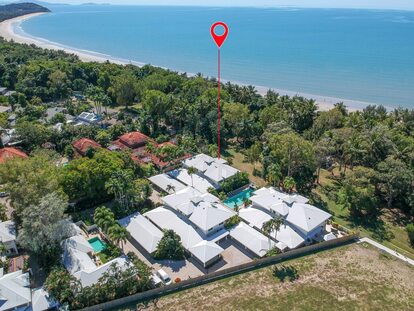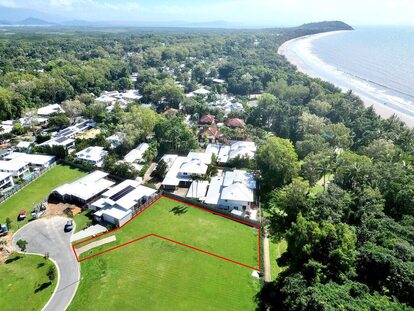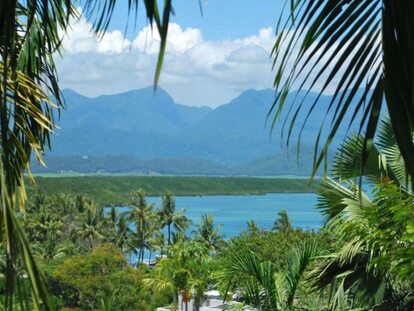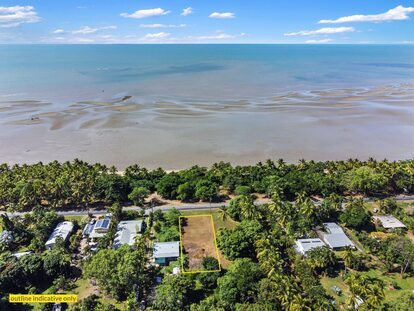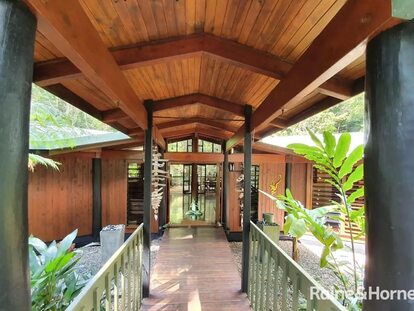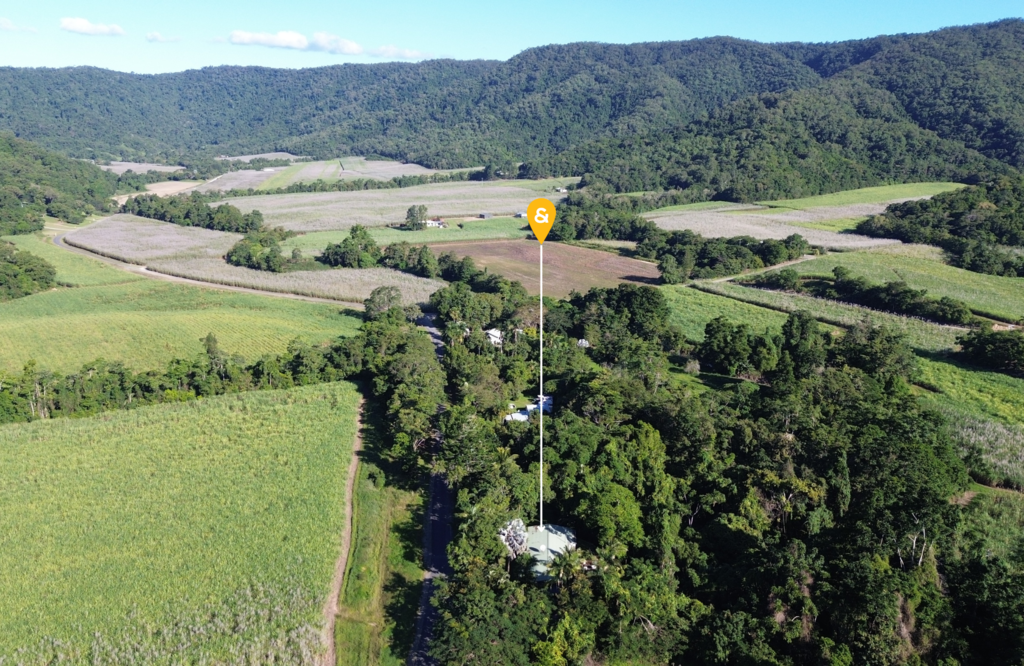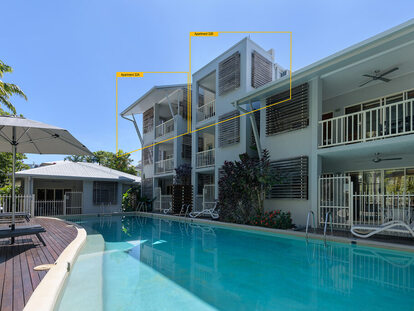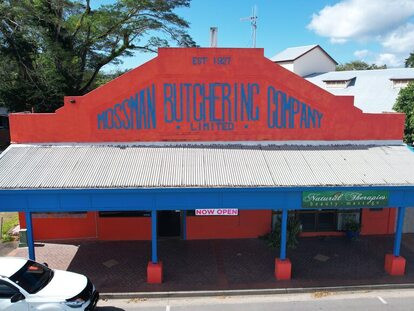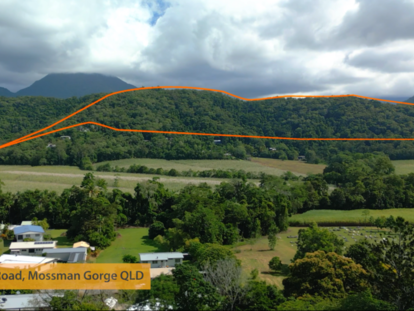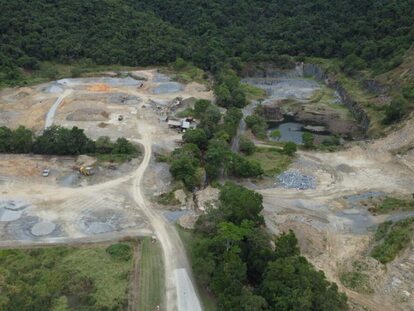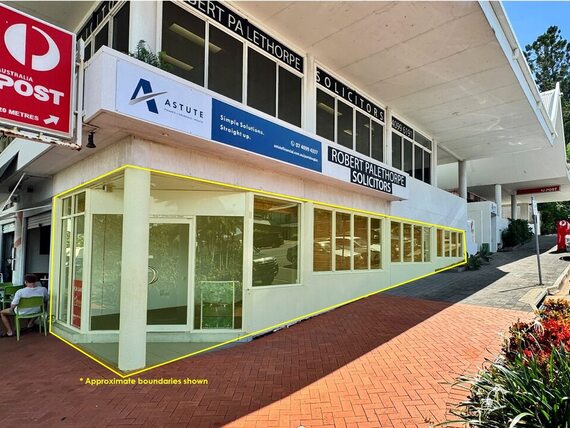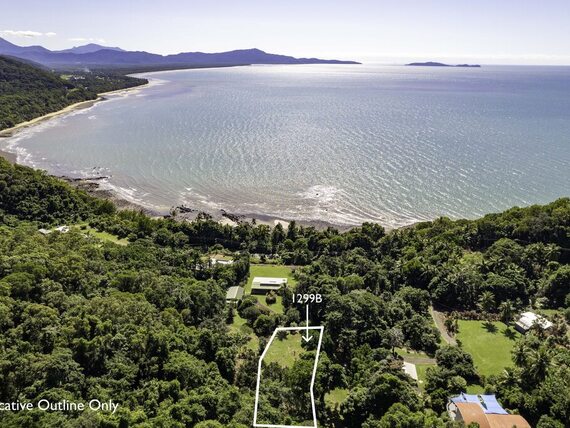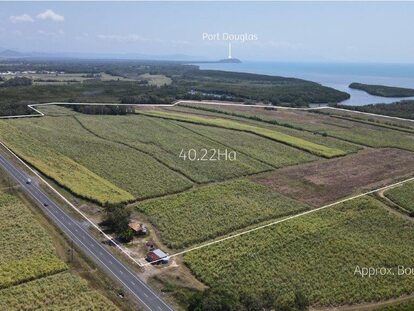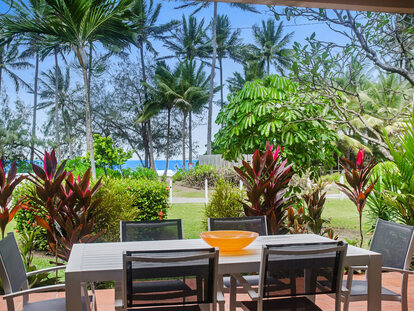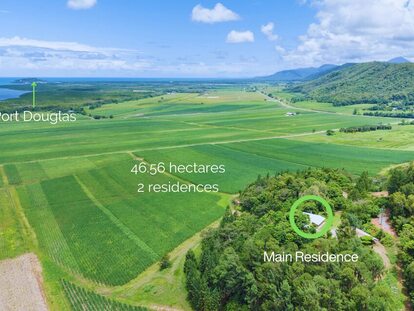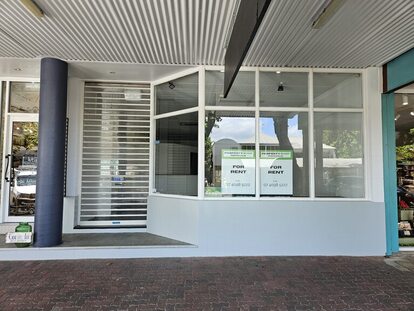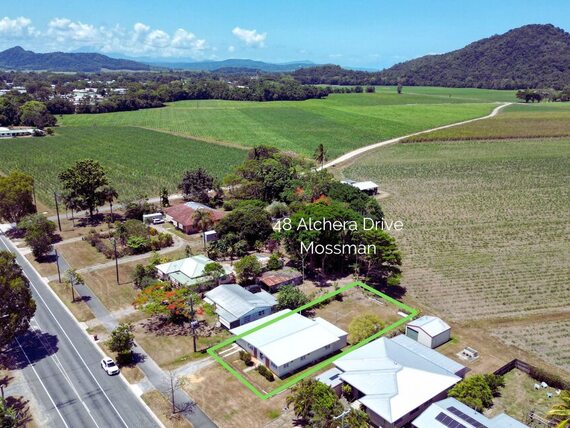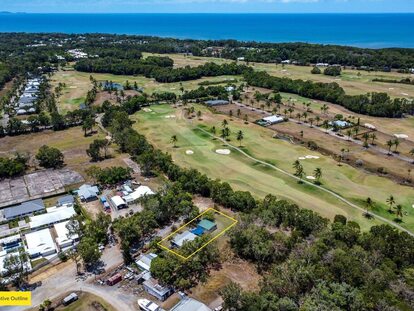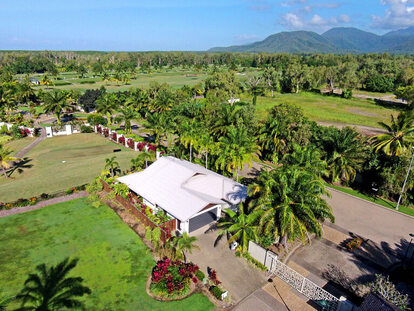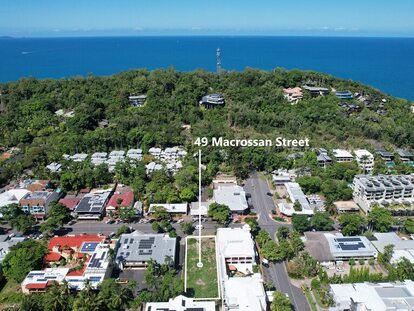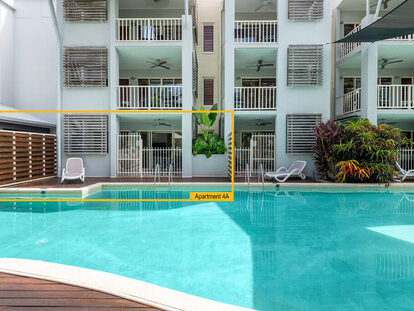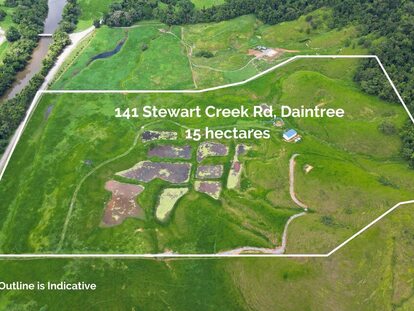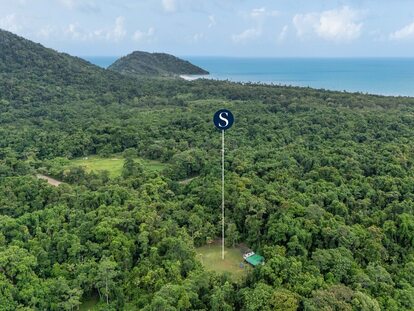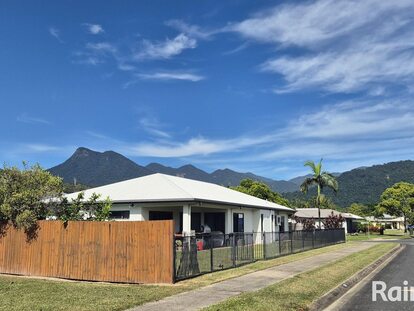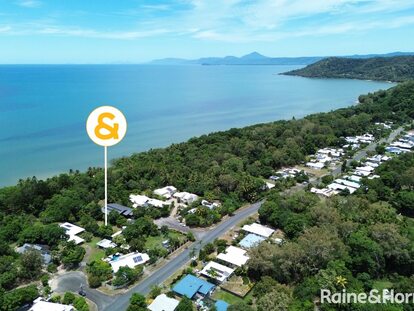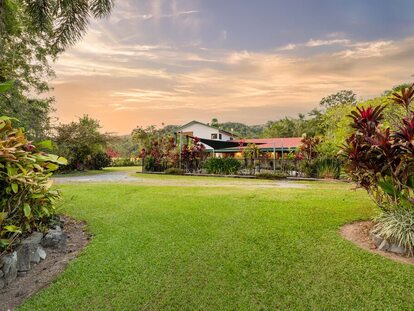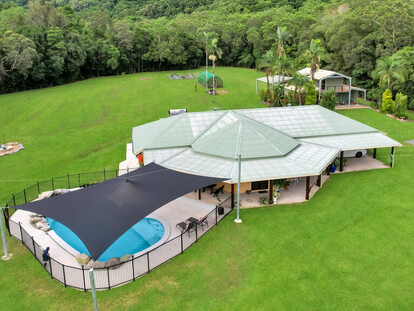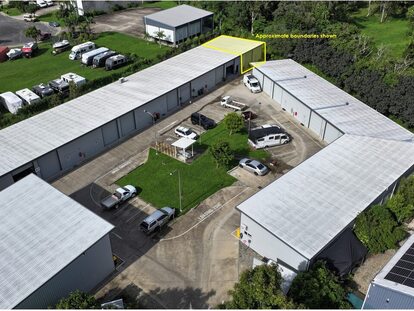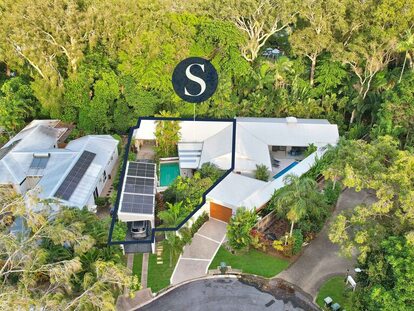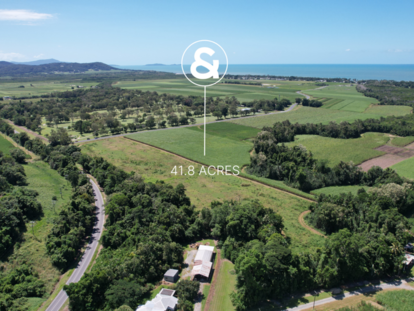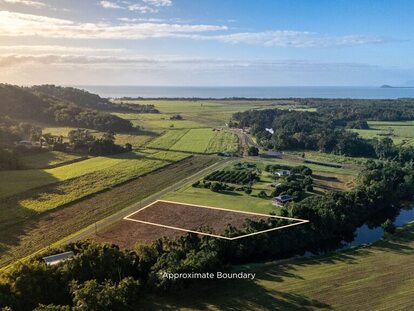|
(
65
)
|
Date
|
Start time
|
End time
|
Event name
|
Event description
|
Location
|
Cost
|
Website link
|
Event contact phone
|
Event contact email
|
Category (Maximum of 4 categories)
|
Terms and conditions
|
Name
|
Email
|
Phone
| |
|---|
| 1. |
Wednesday 18 June 2025
2025-06-18T00:00:00+10:00
|
9:00 am
|
3:00 pm
|
STATE OF ORIGIN LIVE @HEMINGWAY'S
|
We'll be playing all State of Origin games live at our venues. Come in grab a beer and a bite to eat and enjoy!
|
Hemingway's Brewery, Port Douglas
| |
https://www.hemingwaysbrewery.com/whats-on/events/live-sport-at-hemingways
|
+61 482 173 337
|
[email protected]
|
Live Entertainment
| |
Jessabel Dael
|
[email protected]
|
09979210220
| |
| 2. |
Saturday 5 July 2025
2025-07-05T00:00:00+10:00
|
5:30pm
|
8:30pm
|
The Davie Smith Duo @ Ellis Beach Bar & Grill
|
It's Saturday Live Music at Ellis Beach Bar & Grill 5:30pm - 8:30pm with the Davie Smith Duo!!
It's Classic Rock, Blues & Soul on the mainstage!
What else is on this Saturday?
• FREE Pancakes for the Kids** - From 7am to 11.30am
• $25 Crispy Squid Plate - From 12pm - 8pm
Don't feel like driving? Our courtesy bus will be operating 12:00pm - 9:00pm with pickups from Palm Cove, Clifton Beach, Kewarra Beach* & Trinity Beach*; Just call when you're ready to go!
*5 people or more
Check out our website for upcoming events, menus, specials and more!
https://ellisbeachbarandgrill.com.au/live-music-ellis-beach-cairns/
**Purchase any main meal and your child eats for free, under 14yo. Not available in conjunction with any other specials/deals.
|
Ellis Beach Bar & Grill
| |
https://www.entertainmentcairns.com/ellis-beach-bar-grill
| |
[email protected]
|
Free Event, Live Entertainment
| |
Jesse McClelland
|
[email protected]
|
40553534
| |
| 3. |
Sunday 29 June 2025
2025-06-29T00:00:00+10:00
|
1:00pm
|
4:00pm
|
Tessa Devine @ Ellis Beach Bar & Grill
|
It's Sunday Live Music at Ellis Beach Bar & Grill 1pm - 4pm with Tessa Devine!
She's immediately mesmerising and unexpected. Looped guitar harmonies, knitted with sublime soprano!
What else is on?
• $2 Oysters available 1pm to 4pm unless sold out earlier
Don't feel like driving? Our courtesy bus will be operating 12:00pm - 6:00pm with pickups from Palm Cove, Clifton Beach, Kewarra Beach* & Trinity Beach*; Just call when you're ready to go!
*5 people or more
Check out our website for upcoming events, menus, specials and more!
https://ellisbeachbarandgrill.com.au/live-music-ellis-beach-cairns/
|
Ellis Beach Bar & Grill
| |
https://www.entertainmentcairns.com/ellis-beach-bar-grill
| |
[email protected]
|
Free Event, Live Entertainment
| |
Jesse McClelland
|
[email protected]
|
40553534
| |
| 4. |
Saturday 28 June 2025
2025-06-28T00:00:00+10:00
|
1:00pm
|
8:30pm
|
Tahlia Brain & Mark Porter @ Ellis Beach Bar & Grill
|
It's Saturday Live Music at Ellis Beach Bar & Grill with Tahlia Brain & Mark Porter from 1pm to 8:30pm!!!
Born and raised in the hills of North East Victoria, Tahlia Brain is an acoustic folk singer/songwriter who likes to tell a story through her music. Drawing inspirations from travelling on the road in her van and her love for the outdoors, she incorporates a soulful and unique tone into her songs and is getting ready to release her debut EP.
Mark is a third generation musician, influenced by the early music that came out of Americas Deep South. With rich vocals, his renditions are raw, played on Acoustic and Dobro slide guitars.
Classic blues sounds of New Orleans, Chicago and Memphis, combined with earthy blues originals, with folk overtones, delivered with impressive presence, that's never overstated.
What else is on this Saturday?
• FREE Pancakes for the Kids** - From 7am to 11.30am
• $25 Crispy Squid Plate - From 12pm - 8pm
Don't feel like driving? Our courtesy bus will be operating 12:00pm - 9:00pm with pickups from Palm Cove, Clifton Beach, Kewarra Beach* & Trinity Beach*; Just call when you're ready to go!
*5 people or more
Check out our website for upcoming events, menus, specials and more!
https://ellisbeachbarandgrill.com.au/live-music-ellis-beach-cairns/
**Purchase any main meal and your child eats for free, under 14yo. Not available in conjunction with any other specials/deals.
|
Ellis Beach Bar & Grill
| |
https://www.entertainmentcairns.com/ellis-beach-bar-grill
| |
[email protected]
|
Free Event, Live Entertainment
| |
Jesse McClelland
|
[email protected]
|
40553534
| |
| 5. |
Friday 27 June 2025
2025-06-27T00:00:00+10:00
|
5:30pm
|
8:30pm
|
Cam Kettle @ Ellis Beach Bar & Grill
|
It's Friday Night Live Music at Ellis Beach Bar & Grill 5:30pm - 8:30pm with Cam Kettle!
Cam brings you an acoustic rollercoaster of genres. His set lists vary to suit guests and will have you dancing all afternoon long!
What else is on?
• $35 Rump Steak and Schooner or House Wine. From 12 – 8pm
Don't feel like driving? Our courtesy bus will be operating 5:00pm - 9:00pm with pickups from Palm Cove, Clifton Beach, Kewarra Beach* & Trinity Beach*; Just call when you're ready to go!
*5 people or more
Check out our website for upcoming events, menus, specials and more!
https://ellisbeachbarandgrill.com.au/live-music-ellis-beach-cairns/
|
Ellis Beach Bar & Grill
| |
https://www.entertainmentcairns.com/ellis-beach-bar-grill
| |
[email protected]
|
Free Event, Live Entertainment
| |
Jesse McClelland
|
[email protected]
|
40553534
| |
| 6. |
Sunday 22 June 2025
2025-06-22T00:00:00+10:00
|
1:00pm
|
4:00pm
|
Nicole Nighthawk @ Ellis Beach Bar & Grill
|
It's Sunday Live Music at Ellis Beach Bar & Grill 1pm - 4pm with Nicole Nighthawk!
Nicole is fast becoming known for her engaging live performances at popular venues in and around Cairns where she plays an impressive mix of crowd-favourites and original songs.
What else is on?
• $2 Oysters available 1pm to 4pm unless sold out earlier
Don't feel like driving? Our courtesy bus will be operating 12:00pm - 6:00pm with pickups from Palm Cove, Clifton Beach, Kewarra Beach* & Trinity Beach*; Just call when you're ready to go!
*5 people or more
Check out our website for upcoming events, menus, specials and more!
https://ellisbeachbarandgrill.com.au/live-music-ellis-beach-cairns/
|
Ellis Beach Bar & Grill
| |
https://www.entertainmentcairns.com/ellis-beach-bar-grill
| |
[email protected]
|
Free Event, Live Entertainment
| |
Jesse McClelland
|
[email protected]
|
40553534
| |
| 7. |
Friday 20 June 2025
2025-06-20T00:00:00+10:00
|
5:30pm
|
8:30pm
|
Drewboy DUO @ Ellis Beach Bar & Grill
|
It's Friday Night Live Music at Ellis Beach Bar & Grill 5:30pm - 8:30pm with Drewboy Duo!
He's bringing you salubrious sounds to sip to and energetic, interactive with the crowd and combine high energy dance tunes, with beautiful storytelling and melodic tunes to leave any demographic satisfied.
What else is on?
• $35 Rump Steak and Schooner or House Wine. From 12 – 8pm
Don't feel like driving? Our courtesy bus will be operating 5:00pm - 9:00pm with pickups from Palm Cove, Clifton Beach, Kewarra Beach* & Trinity Beach*; Just call when you're ready to go!
*5 people or more
Check out our website for upcoming events, menus, specials and more!
https://ellisbeachbarandgrill.com.au/live-music-ellis-beach-cairns/
|
Ellis Beach Bar & Grill
| |
https://www.entertainmentcairns.com/ellis-beach-bar-grill
| |
[email protected]
|
Free Event, Live Entertainment
| |
Jesse McClelland
|
[email protected]
|
40553534
| |
| 8. |
Saturday 14 June 2025
2025-06-14T00:00:00+10:00
|
5:30pm
|
8:30pm
|
Phoebe & Zane @ Ellis Beach Bar & Grill
|
It's Saturday Live Music at Ellis Beach Bar & Grill 5:30pm - 8:30pm with Phoebe & Zane!
Party beats and soulful tones, Phoebe and Zane serve up original takes on covers with Live Loops.
What else is on this Saturday?
• FREE Pancakes for the Kids** - From 7am to 11.30am
• $25 Crispy Squid Plate - From 12pm - 8pm
Don't feel like driving? Our courtesy bus will be operating 12:00pm - 9:00pm with pickups from Palm Cove, Clifton Beach, Kewarra Beach* & Trinity Beach*; Just call when you're ready to go!
*5 people or more
Check out our website for upcoming events, menus, specials and more!
https://ellisbeachbarandgrill.com.au/live-music-ellis-beach-cairns/
**Purchase any main meal and your child eats for free, under 14yo. Not available in conjunction with any other specials/deals.
|
Ellis Beach Bar & Grill
| |
https://www.entertainmentcairns.com/ellis-beach-bar-grill
| |
[email protected]
|
Free Event, Live Entertainment
| |
Jesse McClelland
|
[email protected]
|
40553534
| |
| 9. |
Friday 13 June 2025
2025-06-13T00:00:00+10:00
|
5:30pm
|
8:30pm
|
Stuie Harcourt @ Ellis Beach Bar & Grill
|
It's Friday Night Live Music at Ellis Beach Bar & Grill 5:30pm - 8:30pm with Stuie Harcourt!
Stu's husky sometimes soaring vocal ability, earthy lyrics, accomplished guitar work acoustic grooves with colours of didgeridoo have continued to delight audiences around Australia and the World.
What else is on?
• $35 Rump Steak and Schooner or House Wine. From 12 – 8pm
Don't feel like driving? Our courtesy bus will be operating 5:00pm - 9:00pm with pickups from Palm Cove, Clifton Beach, Kewarra Beach* & Trinity Beach*; Just call when you're ready to go!
*5 people or more
Check out our website for upcoming events, menus, specials and more!
https://ellisbeachbarandgrill.com.au/live-music-ellis-beach-cairns/
|
Ellis Beach Bar & Grill
| |
https://www.entertainmentcairns.com/ellis-beach-bar-grill
| |
[email protected]
|
Free Event, Live Entertainment
| |
Jesse McClelland
|
[email protected]
|
40553534
| |
| 10. |
Sunday 22 June 2025
2025-06-22T00:00:00+10:00
|
9.30am
|
12.40pm
|
Celebrating Australian Week of Yoga
|
Celebrate Yoga Day with Us at Port Douglas Yoga!
|
Port Douglas Yoga Shala, above The Book Lounge on the corner of Grant and Warner streets
|
Free
|
www.portdouglasyoga.com
|
0455 035 185
|
[email protected]
|
Free Event
| |
Lesley Johnston
|
[email protected]
|
0455035185
| |
| 11. |
Sunday 8 June 2025
2025-06-08T00:00:00+10:00
|
Markets from 8am Live Music from 12pm
| |
Daintree Festival 2025 (Poundcake performing live!)
|
As a celebration of the seasonal opening of the Daintree CREB Track and the beginning of the tourism season. The iconic Daintree Festival has been revived in 2025 in the heart of the Daintree Village on the 8th of June. Attendees can enjoy live music from band Poundcake from 12pm and markets along a partially closed Stewart St. Come along and enjoy this fun community event and celebrate our beautiful region!
For interested stallholders, contact Vince @ 0424 368 390. It is completely FREE!
|
Daintree Village, Stewart St
|
Free
|
https://www.facebook.com/profile.php?id=61576678116938
|
0424368390
|
[email protected]
|
Community Event, Family Event, Free Event, Live Entertainment, Markets
|
For Stallholders: Food or drink vans will not be permitted at the event
|
Byron Filmer
|
[email protected]
|
0457543696
| |
| 12. |
Saturday 7 June 2025
2025-06-07T00:00:00+10:00
|
5:30pm
| |
Mossman Gymnastics Fundraiser Trivia Night and more!
|
Get your team together for a fun-filled night of trivia with Kstar Events, raffles, auctions, and prizes – all while supporting our local gymnasts.
When: Saturday, 7th June, from 5:30pm
Where: Mossman Boat & Fishing Club
|
Mossman Boat & Fishing Club, Newell Beach
|
$10
|
https://www.mossmangymnastics.com/gym-shop?fbclid=IwY2xjawKp0b9leHRuA2FlbQIxMABicmlkETFFTDVvY3djVWpPanNsUGF2AR6cCJdNdcAXFD01lUqWsGJfqvPZsSpH2u0YLIiWnQGR3AaTNQZ5BJgma4rbpQ_aem_9LAWMMs9hri6ClzrbC2xuw#!/MDGC-Trivia-Night-Fundraiser/p/138968585
|
0488665507
|
[email protected]
|
Community Event, Family Event, Food & Wine Event, Trivia & Games
| |
Vanessa Carey
|
[email protected]
|
0488665507
| |
| 13. |
Wednesday 25 June 2025
2025-06-25T00:00:00+10:00
|
1:00pm
|
4:00pm
|
Four Mile Beach Monthly Clean-up
|
Looking for a way to be part of practical solutions for our environment? Four Mile Beach in Port Douglas is one of our longest-running QLD beach monitoring sites. We have been cleaning and collecting data from this site each month since 2009.
Volunteers need to wear enclosed shoes, bring sun/rain protection, and plenty of drinking water (1 to 2 litres is recommended). We try to ensure that all Tangaroa Blue events are free from single-use plastic, so bring along your reusable water bottle. All equipment and drinking water top-ups will be provided.
To register, please email [email protected].
|
Daintree Lounge at the Sheraton Grand Mirage, Port Douglas (behind the piano)
|
Free
|
https://tangaroablue.org/events-calendar/four-mile-beach-north-and-middle-monthly-clean-up-qld/
| |
[email protected]
|
Community Event, Free Event
| |
Lucy
|
[email protected]
|
0431870165
| |
| 14. |
Sunday 31 August 2025
2025-08-31T00:00:00+10:00
|
4pm
|
8pm
|
TUSK – The Fleetwood Mac Tribute | Live at The YACHTY
|
Get ready for a night of timeless music and powerful nostalgia as TUSK – The Fleetwood Mac Tribute Show brings the magic of one of the world’s greatest bands to Port Douglas Yacht Club. Celebrating 50 years of hits, TUSK delivers a stunning recreation of Fleetwood Mac’s iconic sound, energy, and emotion.
Led by the phenomenal Penni Jones as Stevie Nicks, this all-star group has toured nationally for over a decade, earning a reputation as Australia’s #1 Fleetwood Mac experience. Expect all the classics — Dreams, Go Your Own Way, Landslide, Rhiannon, Don’t Stop, and many more — in a full concert-style performance that will have you singing, swaying, and maybe shedding a tear or two.
One night only. One unforgettable show.
Doors: 4pm
Support: 5:00pm - 6:00pm
Fleetwood Mac: 6:30pm - 8:00pm
|
The YACHTY - Port Douglas Yacht Club - 1 spinnaker cl - Port Douglas
| |
https://www.eventbrite.com.au/e/tusk-the-fleetwood-mac-tribute-live-at-port-douglas-yacht-club-tickets-1359853691999?aff=ebdsoporgprofile
|
0740994386
|
[email protected]
|
Arts & Culture, Community Event, Family Event, Live Entertainment
| |
John Pooley
|
[email protected]
|
0740994386
| |
| 15. |
Sunday 27 July 2025
2025-07-27T00:00:00+10:00
|
3 pm (door 2pm)
|
6 pm
|
RIFF RAFF ACDC Tribute @ The YACHTY
|
Get ready to crank it up at the Port Douglas Yacht Club! Melbourne’s down-and-dirty AC/DC tribute band Riff Raff is bringing the full-throttle Bon Scott-era mayhem to FNQ, blasting through 1976 classics with raw energy and serious volume. Featuring top-tier musos from Hot Machine, 6v6s and more, this five-piece outfit nails the swagger and sound of peak ACCA DACCA. Kicking things off are the rarely-seen Shats — acoustic guitar shredders Stuie Harcourt and Chris Mathews, slinging dirty blues and bush ballads like a pair of outback outlaws. Two wild sets. One big night. Don’t miss it.
Doors - 2pm
The Shats: 3pm - 4pm
Riff Raff: 4:30 - 6pm
|
The YACHTY - Port Douglas Yacht Club - 1 spinnaker cl - Port Douglas
| |
https://www.eventbrite.com.au/e/riff-raff-the-ultimate-bon-scott-era-tribute-tickets-1358197708909?aff=ebdsoporgprofile
|
0740994386
|
[email protected]
|
Arts & Culture, Community Event, Family Event, Live Entertainment
| |
John Pooley
|
[email protected]
|
0740994386
| |
| 16. |
Sunday 22 June 2025
2025-06-22T00:00:00+10:00
|
3 pm
|
6 pm
|
HUSSY HICKS /BOING BOING EVENT @ The Yachty - Port Douglas Yacht Club
|
2 of Queenslands favourite live acts join forces for what is shaping up to be an epic Sunday Session at the beautiful Port Douglas Yacht Club
|
The YACHTY - Port Douglas Yacht Club - 1 spinnaker cl - Port Douglas
| |
https://www.trybooking.com/events/landing/1396494?fbclid=IwY2xjawKieGVleHRuA2FlbQIxMABicmlkETFEakdNVFBNcHFPQktSTEFQAR7RiOtcKRvuBaOULzCjMMbZgyz-sc-5cQCjTDw_8qxvrOAIaiHKYYy0L6Ciag_aem_OW-9k1kotgkTgrj5ttAZzQ
|
0740994386
|
[email protected]
|
Arts & Culture, Community Event, Family Event, Live Entertainment
| |
John Pooley
|
[email protected]
|
0740994386
| |
| 17. |
Sunday 10 August 2025
2025-08-10T00:00:00+10:00
|
3 pm
|
6 pm
|
Ash Grunwald Live at The YACHTY - Port Douglas Yacht Club – 2025
|
Ash Grunwald Live at The YACHTY - Port Douglas Yacht Club – 2025
After an unforgettable show last time around, Ash Grunwald is back and he's bringing his legendary live energy to the Port Douglas Yacht Club!
Renowned for his electrifying live shows, Ash Grunwald has inspired a generation to hit the road in an old van to ‘surf by day jam by night’. The festival favourite brings a high energy, vibrant live show with stacks of guitars and foot stomping blues. Part troubadour, part storyteller - Ash has been selling out shows all over the country, don't miss Ash's return to the Port Douglas Yacht Club
Don’t miss this night of live music under the stars. It’s going to be epic.
|
The YACHTY - Port Douglas Yacht Club - 1 spinnaker cl - Port Douglas
| |
https://events.humanitix.com/ash-grunwald-at-port-douglas-yacht-club-5x28qc4v?fbclid=IwY2xjawKib79leHRuA2FlbQIxMABicmlkETFFemU1V3FBend2b3kxSnU2AR4v_jeTUwRUm3wMsWyFsh3jA9KxQ36y7TCnNRfSv-VyZFnQ1xOu5-SnDdZILQ_aem_Az-7dlt2JwzYR0hjHkh6ag
|
0740994386
|
[email protected]
|
Arts & Culture, Community Event, Family Event, Live Entertainment
| |
John Pooley
|
[email protected]
|
0740994386
| |
| 18. |
Monday 9 June 2025
2025-06-09T00:00:00+10:00
|
9 pm
|
midnight
|
FULL MOON PARTY at the YACHTY
|
Full Moon Party at the Yachty – Monday, 9th JUNE
Get ready to dance under the stars and celebrate the full moon Yachty-style!
Join us , Monday, 9th JUNE for an epic night of music, drinks, and good vibes by the water !
|
The YACHTY - Port Douglas Yacht Club - 1 spinnaker cl - Port Douglas
|
$15 - cash at the door
|
https://www.facebook.com/PortDouglasYC
|
0740994386
|
[email protected]
|
Arts & Culture, Community Event, Live Entertainment, Major Event
| |
John Pooley
|
[email protected]
|
0740994386
| |
| 19. |
Saturday 5 July 2025
2025-07-05T00:00:00+10:00
|
8am
|
10.00am
|
Working Bee at Mossman Botanic Garden
|
Working Bee at Mossman Botanic Garden!
Join us this Saturday at 8am in the Garden of Woven Memories for a morning of weeding, mulching, and giving our plants a cozy winter tuck-in.
No experience needed—just bring your gloves, good vibes, and a little time. It’s fun, rewarding, and a great way to connect with the community!
See you there?
|
Circle of Plenty, Mossman Botanic Garden, Foxton Ave, Mossman
|
Nil
|
www.facebook.com/profile.php?id=61551160891877
|
0422700904
|
[email protected]
|
Community Event, Family Event, Free Event
| |
Monika Prins
|
[email protected]
|
0422700904
| |
| 20. |
Saturday 7 June 2025
2025-06-07T00:00:00+10:00
|
8am
|
10.00am
|
Working Bee at Mossman Botanic Garden
|
Working Bee at Mossman Botanic Garden!
Join us this Saturday at 8am in the Garden of Woven Memories for a morning of weeding, mulching, and giving our plants a cozy winter tuck-in.
No experience needed—just bring your gloves, good vibes, and a little time. It’s fun, rewarding, and a great way to connect with the community!
See you there?
|
Circle of Plenty, Mossman Botanic Garden, Foxton Ave, Mossman
|
Nil
|
www.facebook.com/profile.php?id=61551160891877
|
0422700904
|
[email protected]
|
Community Event, Family Event, Free Event
| |
Monika Prins
|
[email protected]
|
0422700904
| |
| 21. |
Saturday 21 June 2025
2025-06-21T00:00:00+10:00
|
8am
|
9.00am
|
Food Gardening at Circle of Plenty Community Garden
|
Let's grow together
We collabortate, socialise, share produce and knowledge. Join us and see for yourself.
☕️ Bonus: Fun, Learning & Connection
|
Circle of Plenty, Mossman Botanic Garden, Foxton Ave, Mossman
|
Nil
|
www.facebook.com/profile.php?id=61551160891877
|
0422700904
|
[email protected]
|
Community Event, Family Event, Free Event
| |
Monika Prins
|
[email protected]
|
0422700904
| |
| 22. |
Tuesday 24 June 2025
2025-06-24T00:00:00+10:00
|
8am
|
9.00am
|
Food Gardening at Circle of Plenty Community Garden
|
Let's grow together
We collabortate, socialise, share produce and knowledge. Join us and see for yourself.
☕️ Bonus: Fun, Learning & Connection
|
Circle of Plenty, Mossman Botanic Garden, Foxton Ave, Mossman
|
Nil
|
www.facebook.com/profile.php?id=61551160891877
|
0422700904
|
[email protected]
|
Community Event, Family Event, Free Event
| |
Monika Prins
|
[email protected]
|
0422700904
| |
| 23. |
Tuesday 17 June 2025
2025-06-17T00:00:00+10:00
|
8am
|
9.00am
|
Food Gardening at Circle of Plenty Community Garden
|
Let's grow together
We collabortate, socialise, share produce and knowledge. Join us and see for yourself.
☕️ Bonus: Fun, Learning & Connection
|
Circle of Plenty, Mossman Botanic Garden, Foxton Ave, Mossman
|
Nil
|
www.facebook.com/profile.php?id=61551160891877
|
0422700904
|
[email protected]
|
Community Event, Family Event, Free Event
| |
Monika Prins
|
[email protected]
|
0422700904
| |
| 24. |
Tuesday 10 June 2025
2025-06-10T00:00:00+10:00
|
8am
|
9.00am
|
Food Gardening at Circle of Plenty Community Garden
|
Let's grow together
We collabortate, socialise, share produce and knowledge. Join us and see for yourself.
☕️ Bonus: Fun, Learning & Connection
|
Circle of Plenty, Mossman Botanic Garden, Foxton Ave, Mossman
|
Nil
|
www.facebook.com/profile.php?id=61551160891877
|
0422700904
|
[email protected]
|
Community Event, Family Event, Free Event
| |
Monika Prins
|
[email protected]
|
0422700904
| |
| 25. |
Sunday 29 June 2025
2025-06-29T00:00:00+10:00
|
4:00pm
|
7:00pm
|
Richie Longford
|
Get ready for an electrifying Sunday session with Richie Langford, the singer, songwriter, and foot-stompin’ blues man who has been captivating audiences across Australia for over twenty years. Fresh from gigs in Europe and New Zealand, Richie is bringing his dynamic one-man show to Club Mossman. Richie’s unique performance features an old suitcase converted into a kick drum, foot tambourine, resonator and acoustic guitars, and soulful harmonica, creating a rockin’ swamp groove that blends originals and blues classics. His well-honed repertoire and infectious energy guarantee an afternoon full of toe-tapping, heart-pounding blues. Bistro is open for lunch from 11:30am and dinner from 5:30pm. Book online clubmossman.com.au.
|
Club Mossman
|
Free
|
www.clubmossman.com.au
|
0740981434
|
[email protected]
|
Live Entertainment
| |
Melissa Di Pietro
|
[email protected]
|
0740981434
| |
| 26. |
Saturday 28 June 2025
2025-06-28T00:00:00+10:00
|
7:00pm
|
10:00pm
|
Yahdoh
|
Yahdoh is a beloved favourite with Port Douglas crowds for his engaging performances and ability to connect with every audience. His soulful voice and versatile repertoire make him the perfect entertainer to lift spirits and keep the good vibes flowing throughout the day. Enjoy dinner in the Bistro open from 5:30pm book online clubmossman.com.au.
|
Club Mossman
|
Free
|
www.clubmossman.com.au
|
0740981434
|
[email protected]
|
Live Entertainment
| |
Melissa Di Pietro
|
[email protected]
|
0740981434
| |
| 27. |
Sunday 22 June 2025
2025-06-22T00:00:00+10:00
|
4:00pm
|
7:00pm
|
Brandon Walker
|
Join us for an unforgettable Sunday session live and local with local legend Brandon Walker, celebrated Mossman musician and cultural storyteller, as he brings the rhythms of Kuku Yalanji country to life. A founding member of The Walker Brothers, Brandon’s music intertwines traditional Indigenous sounds with contemporary folk and blues, creating a vibrant tapestry of storytelling through song. Expect foot-stomping rhythms, haunting melodies, and stories that transport your heart and soul.
Book in the Bistro for a traditional Sunday Roast open from 11:30am, have an ice-cold beer and maybe a roll up on our undercover bowls area.
|
Club Mossman
|
Free
|
www.clubmossman.com.au
|
0740981434
|
[email protected]
|
Live Entertainment
| |
Melissa Di Pietro
|
[email protected]
|
0740981434
| |
| 28. |
Friday 20 June 2025
2025-06-20T00:00:00+10:00
|
7:30pm
|
10:30pm
|
Katie Richards
|
Katie Richards is an indie folk-rock artist with influences from reggae and pop, bringing a warm, soulful energy to her guitar and vocal performances. Katie Richards has been a full time Musician for over 10 years travelling with her music around Australia and New Zealand. With her calming, strong, on key vocals, light percussion, guitar and harmonies, Katie is the complete package.
|
Club Mossman
|
Free
|
www.clubmossman.com.au
|
0740981434
|
[email protected]
|
Live Entertainment
| |
Melissa Di Pietro
|
[email protected]
|
0740981434
| |
| 29. |
Sunday 24 August 2025
2025-08-24T00:00:00+10:00
|
4:00pm
|
7:00pm
|
Shanice Duo
|
Shanice Duo will be performing at Club Mossman providing an array of music to cater to all tastes. Enjoy a chilled Sunday with ice cold beer, traditional Sunday Roast is on offer in the Bistro for lunch, opens at 11:30am. Book online to secure your table clubmossman.com.au.
|
Club Mossman
|
Free
|
www.clubmossman.com.au
|
0740981434
|
[email protected]
|
Live Entertainment
| |
Melissa Di Pietro
|
[email protected]
|
0740981434
| |
| 30. |
Saturday 5 July 2025
2025-07-05T00:00:00+10:00
|
7:30pm
|
10:30pm
|
Shanice Duo
|
Shanice Duo will be performing at Club Mossman providing an array of music to cater to all tastes. Chef's Specials on offer in the Bistro for dinner, opens at 5:30pm. Book online to secure your table clubmossman.com.au.
|
Club Mossman
|
Free
|
www.clubmossman.com.au
|
0740981434
|
[email protected]
|
Live Entertainment
| |
Melissa Di Pietro
|
[email protected]
|
0740981434
| |
| 31. |
Sunday 15 June 2025
2025-06-15T00:00:00+10:00
|
4:00pm
|
7:00pm
|
Shanice Duo
|
Shanice Duo will be performing at Club Mossman providing an array of music to cater to all tastes. Enjoy a lovely Sunday afternoon with ice cold beer. Sunday Roast is on offer in the Bistro for lunch open from 11:30am. Book online to secure your table.
|
Club Mossman
|
Free
|
www.clubmossman.com.au
|
0740981434
|
[email protected]
|
Live Entertainment
| |
Melissa Di Pietro
|
[email protected]
|
0740981434
| |
| 32. |
Friday 8 August 2025
2025-08-08T00:00:00+10:00
|
7:30pm
|
10:30pm
|
Rob Longstaff
|
Live and Local at Club Mossman Rob Longstaff will be entertaining you from 7:30pm. Powerful vocals with humorous lyrics, passionate guitar playing and charm Rob Longstaff is a one-man-groove-machine! Bistro is open at 5:30pm for dinner, book online clubmossman.com.au.
|
Club Mossman
|
Free
|
www.clubmossman.com.au
|
0740981434
|
[email protected]
|
Live Entertainment
| |
Melissa Di Pietro
|
[email protected]
|
0740981434
| |
| 33. |
Friday 18 July 2025
2025-07-18T00:00:00+10:00
|
7:30pm
|
10:30pm
|
Rob Longstaff
|
Live and Local at Club Mossman Rob Longstaff will be entertaining you from 7:30pm. Powerful vocals with humorous lyrics, passionate guitar playing and charm Rob Longstaff is a one-man-groove-machine! Bistro is open at 5:30pm for dinner, book online clubmossman.com.au.
|
Club Mossman
|
Free
|
www.clubmossman.com.au
|
0740981434
|
[email protected]
|
Live Entertainment
| |
Melissa Di Pietro
|
[email protected]
|
0740981434
| |
| 34. |
Saturday 14 June 2025
2025-06-14T00:00:00+10:00
|
7:30pm
|
10:30pm
|
Rob Longstaff
|
Live and Local at Club Mossman Rob Longstaff will be entertaining you from 7:30pm. Powerful vocals with humorous lyrics, passionate guitar playing and charm Rob Longstaff is a one-man-groove-machine! Bistro is open at 5:30pm for dinner, book online clubmossman.com.au.
|
Club Mossman
|
Free
|
www.clubmossman.com.au
|
0740981434
|
[email protected]
|
Live Entertainment
| |
Melissa Di Pietro
|
[email protected]
|
0740981434
| |
| 35. |
Friday 12 September 2025
2025-09-12T00:00:00+10:00
|
7:30pm
|
10:30pm
|
Rockin' Rick DJ
|
Enjoy a great night out starting with dinner in the Club's Bistro, try the Chef's Specials opens at 5:30pm. Live and local Rockin' Rick DJ will be entertaining you. Song requests welcome!
|
Club Mossman
|
Free
|
www.clubmossman.com.au
|
0740981434
|
[email protected]
|
Live Entertainment
| |
Melissa Di Pietro
|
[email protected]
|
0740981434
| |
| 36. |
Friday 15 August 2025
2025-08-15T00:00:00+10:00
|
7:30pm
|
10:30pm
|
Rockin' Rick DJ
|
Enjoy a great night out starting with dinner in the Club's Bistro, try the Chef's Specials opens at 5:30pm. Live and local Rockin' Rick DJ will be entertaining you. Song requests welcome!
|
Club Mossman
|
Free
|
www.clubmossman.com.au
|
0740981434
|
[email protected]
|
Live Entertainment
| |
Melissa Di Pietro
|
[email protected]
|
0740981434
| |
| 37. |
Friday 11 July 2025
2025-07-11T00:00:00+10:00
|
7:30pm
|
10:30pm
|
Rockin' Rick DJ
|
Enjoy a great night out starting with dinner in the Club's Bistro, try the Chef's Specials opens at 5:30pm. Live and local Rockin' Rick DJ will be entertaining you. Song requests welcome!
|
Club Mossman
|
Free
|
www.clubmossman.com.au
|
0740981434
|
[email protected]
|
Live Entertainment
| |
Melissa Di Pietro
|
[email protected]
|
0740981434
| |
| 38. |
Friday 13 June 2025
2025-06-13T00:00:00+10:00
|
7:30pm
|
10:30pm
|
Rockin' Rick DJ
|
Enjoy a great night out starting with dinner in the Club's Bistro, try the Chef's Specials opens at 5:30pm. Live and local Rockin' Rick DJ will be entertaining you. Song requests welcome!
|
Club Mossman
|
Free
|
www.clubmossman.com.au
|
0740981434
|
[email protected]
|
Live Entertainment
| |
Melissa Di Pietro
|
[email protected]
|
0740981434
| |
| 39. |
Saturday 7 June 2025
2025-06-07T00:00:00+10:00
|
7:30pm
|
10:30pm
|
Brandon Walker
|
Join us for an unforgettable evening with local legend Brandon Walker, celebrated Mossman musician and cultural storyteller, as he brings the rhythms of Kuku Yalanji country to life. A founding member of The Walker Brothers, Brandon’s music intertwines traditional Indigenous sounds with contemporary folk and blues, creating a vibrant tapestry of storytelling through song. Expect foot-stomping rhythms, haunting melodies, and stories that transport your heart and soul. Book in for dinner at the Club's Bistro from 5:30pm, book online clubmossman.com.au.
|
Club Mossman
|
Free
|
www.clubmossman.com.au
|
0740981434
|
[email protected]
|
Live Entertainment
| |
Melissa Di Pietro
|
[email protected]
|
0740981434
| |
| 40. |
Friday 11 July 2025
2025-07-11T00:00:00+10:00
|
6:00pm
|
10:00pm
|
Big Pups presents the Coastal Country Music Muster
|
Big Pups presents the Coastal Country Music Muster – a night of boots, hats, and top-tier country tunes at Ellis Beach Bar & Grill, Friday 11 July! Catch powerhouse performances from Anais Campbell, Tullara, and headline act Big Pups Band in this free-entry event celebrating the best of country music up north.
It’s the first of many, so round up your crew, enjoy the beachfront vibes, and make it a night to remember. Courtesy bus available—don’t miss out!
Anais Campbell
https://www.facebook.com/anaismusicofficial/
Tullara
https://www.facebook.com/tullaramusic
Big Pups Band
https://www.facebook.com/bigpupsmusic
Friday 11th of July • Doors 6pm
Courtesy bus available on the night
|
Ellis Beach Bar & Grill
| |
https://www.entertainmentcairns.com/ellis-beach-bar-grill
|
40553534
| |
Free Event, Live Entertainment
| |
Jesse
|
[email protected]
|
0458556237
| |
| 41. |
Friday 25 July 2025
2025-07-25T00:00:00+10:00
|
6:00pm
|
10:00pm
|
RIFF RAFF ACDC Tribute @ Ellis Beach Bar & Grill
|
RIFF RAFF ACDC Tribute
W/ Special Guests The Shats
RIFF RAFF, Melbourne's down & dirty ACCA DACCA cover band takes you back to the 1976 Bon Scott era with loud, raw, rock n' roll bliss. Featuring Melbourne's cream of musos including 6V6's front man Willy J, drummer Callum Leavey, bassist Seb Robertson, Hot Machine guitarist Sarsha Marsden and Jeff barrett on lead.
Arriving on the scene in 2023, Riff Raff we're quick to sell out shows before jumping on Nationwide tours and are now bringing the Bon Scott party for Far North Queensland and Tasmania in mid 2025.
Get ready to rock out with RIFF RAFF's incredible ACDC Tribute at Ellis Beach Bar & Grill!
Courtesy bus available on the night: 4055 3534
|
Ellis Beach Bar & Grill
| |
https://www.eventbrite.com/e/riff-raff-acdc-tribute-ellis-beach-bar-grill-tickets-1320836490499?aff=oddtdtcreator&fbclid=IwY2xjawKQ3iRleHRuA2FlbQIxMABicmlkETFkVEhQS2xCWkoxRVBaUVVEAR7cKlgpcF3PBT6P2qTh46s60x4k8FveedurNolTneonhNlqShuqaf7CDlRtfw_aem_wa3L_GrzE_TuKS9q7kSj7w
| | |
Live Entertainment, Major Event
| |
Jesse
|
[email protected]
|
0458556237
| |
| 42. |
Sunday 5 October 2025
2025-10-05T00:00:00+10:00
|
6:30pm
|
10:30pm
|
Britfest Cairns - Long Weekend
|
BRIT FEST (from UK to FNQ) Presented by Bosh Events
Sunday October 5th, 2025 (Long Weekend) Ellis Beach Bar & Grill - QLD
Get ready for an unforgettable night of iconic British music at Brit Fest!
Taking over Ellis Beach Bar & Grill on Sunday, October 5th, 2025, this tribute-packed event features an incredible lineup of acts that will transport you straight to the UK.
- Coldplay brought to life by Parachutes
- Robbie Williams by This Is Robbie
- Madness and Blur recreated by Charmless Men
- Oasis delivered by the one and only R Kids
- The Beatles unplugged with Brendan Gaspari
- Ed Sheeran by Sheeran Out Loud
Doors open at 6:30 PM, and with such an epic lineup, you’ll want to arrive early to grab your spot.
Tickets are on sale NOW, so don’t miss your chance to relive the greatest hits from the UK’s most celebrated artists—all in one night, at one iconic venue.
Book now and be part of Brit Fest, where the best of Britain comes to life
|
Ellis Beach Bar & Grill
| |
https://megatix.com.au/events/brit-fest-cairns?fbclid=IwY2xjawKQ3cpleHRuA2FlbQIxMABicmlkETFkVEhQS2xCWkoxRVBaUVVEAR4fQCchAl5lfnqhGPb9phbwRZXRdMeJiLePp_Rj5C8qeEmLaiqG4fYepkcVRA_aem_EoPLjg3EUeNjmUC_b0PhiA
| | |
Live Entertainment, Major Event
| |
Jesse
|
[email protected]
|
0458556237
| |
| 43. |
Sunday 8 June 2025
2025-06-08T00:00:00+10:00
| | |
Maho Magic Bar
|
Be transported to a neon-lit Tokyo night of mischief, amazement, cocktails and laughter. Get ready to disbelieve your eyes as Japan's very best perform exclusive magic shows at your table. Part show. Part bar. All magic!
|
Dixie Park
|
From $62.10
|
https://www.mahomagicbar.com/portdouglas
| |
[email protected]
|
Arts & Culture, Live Entertainment
|
https://www.mahomagicbar.com/terms
|
Darcie
|
[email protected]
|
0403720255
| |
| 44. |
Saturday 7 June 2025
2025-06-07T00:00:00+10:00
| | |
Maho Magic Bar
|
Be transported to a neon-lit Tokyo night of mischief, amazement, cocktails and laughter. Get ready to disbelieve your eyes as Japan's very best perform exclusive magic shows at your table. Part show. Part bar. All magic!
|
Dixie Park
|
From $62.10
|
https://www.mahomagicbar.com/portdouglas
| |
[email protected]
|
Arts & Culture, Live Entertainment
|
https://www.mahomagicbar.com/terms
|
Darcie
|
[email protected]
|
0403720255
| |
| 45. |
Friday 26 September 2025
2025-09-26T00:00:00+10:00
|
7:30pm
|
10:30pm
|
Rockin' Rick Karaoke
|
Rockin' Rick Karaoke is starting at 7:30pm. Enjoy an array of local talent live at Club Mossman. Bistro opens at 5:30pm and bookings can be made via clubmossman.com.au. Members Draw and Jag a Joker from 6:30pm. Be there to win!
|
Club Mossman
|
Free
|
www.clubmossman.com.au
|
0740981434
|
[email protected]
|
Live Entertainment
| |
Melissa Di Pietro
|
[email protected]
|
0740981434
| |
| 46. |
Friday 29 August 2025
2025-08-29T00:00:00+10:00
|
7:30pm
|
10:30pm
|
Rockin' Rick Karaoke
|
Rockin' Rick Karaoke is starting at 7:30pm. Enjoy an array of local talent live at Club Mossman. Bistro opens at 5:30pm and bookings can be made via clubmossman.com.au. Members Draw and Jag a Joker from 6:30pm. Be there to win!
|
Club Mossman
|
Free
|
www.clubmossman.com.au
|
0740981434
|
[email protected]
|
Live Entertainment
| |
Melissa Di Pietro
|
[email protected]
|
0740981434
| |
| 47. |
Friday 25 July 2025
2025-07-25T00:00:00+10:00
|
7:30pm
|
10:30pm
|
Rockin' Rick Karaoke
|
Rockin' Rick Karaoke is starting at 7:30pm. Enjoy an array of local talent live at Club Mossman. Bistro opens at 5:30pm and bookings can be made via clubmossman.com.au. Members Draw and Jag a Joker from 6:30pm. Be there to win!
|
Club Mossman
|
Free
|
www.clubmossman.com.au
|
0740981434
|
[email protected]
|
Live Entertainment
| |
Melissa Di Pietro
|
[email protected]
|
0740981434
| |
| 48. |
Friday 27 June 2025
2025-06-27T00:00:00+10:00
|
7:30pm
|
10:30pm
|
Rockin' Rick Karaoke
|
Rockin' Rick Karaoke is starting at 7:30pm. Enjoy an array of local talent live at Club Mossman. Bistro opens at 5:30pm and bookings can be made via clubmossman.com.au. Members Draw and Jag a Joker from 6:30pm. Be there to win!
|
Club Mossman
|
Free
|
www.clubmossman.com.au
|
0740981434
|
[email protected]
|
Live Entertainment
| |
Melissa Di Pietro
|
[email protected]
|
0740981434
| |
| 49. |
Saturday 30 August 2025
2025-08-30T00:00:00+10:00
|
5:30pm
|
10:00pm
|
Tusk-The Fleetwood Mac Tribute Show
|
From the emotionally charged beginnings of this iconic band to Stevie Nicks solo journey, Tusk-The Fleetwood Mac Tribute Show, gives the audience a peek into what makes Fleetwood Mac one of the greatest bands of all time. Penni Jones portrayal of Stevie Nicks is not only hauntingly authentic vocally but shows the dueling intensity and innocence of our leading lady that was only ever captured in early footage.
This year Tusk are celebrating half a century of hits from Fleetwood Mac & Stevie Nicks, bringing the big concert experience to you in one night.
With an all-star line up and over 10 years of touring Tusk is Australia’s leading Fleetwood Mac and Stevie Nicks experience.
All the chart-topping songs including Dreams, Go Your Own Way, Little Lies, Gypsy, Landslide, Rhiannon, Edge Of Seventeen, Don’t Stop and more.
|
Ellis Beach Bar & Grill
| |
https://www.entertainmentcairns.com/ellis-beach-bar-grill
| |
[email protected]
|
Live Entertainment, Major Event
| |
Jesse McClelland
|
[email protected]
|
40553534
| |
| 50. |
Saturday 19 July 2025
2025-07-19T00:00:00+10:00
|
5:30pm
|
8:30pm
|
Tahlia Brain @ Ellis Beach Bar & Grill
|
It's Saturday Live Music at Ellis Beach Bar & Grill 5:30pm - 8:30pm with Tahlia Brain!
Born and raised in the hills of North East Victoria, Tahlia Brain is an acoustic folk singer/songwriter who likes to tell a story through her music. Drawing inspirations from travelling on the road in her van and her love for the outdoors, she incorporates a soulful and unique tone into her songs and is getting ready to release her debut EP.
What else is on this Saturday?
• FREE Pancakes for the Kids** - From 7am to 11.30am
• $25 Crispy Squid Plate - From 12pm - 8pm
Don't feel like driving? Our courtesy bus will be operating 12:00pm - 9:00pm with pickups from Palm Cove, Clifton Beach, Kewarra Beach* & Trinity Beach*; Just call when you're ready to go!
*5 people or more
Check out our website for upcoming events, menus, specials and more!
https://ellisbeachbarandgrill.com.au/live-music-ellis-beach-cairns/
**Purchase any main meal and your child eats for free, under 14yo. Not available in conjunction with any other specials/deals.
|
Ellis Beach Bar & Grill
| |
https://www.entertainmentcairns.com/ellis-beach-bar-grill
| |
[email protected]
|
Free Event, Live Entertainment
| |
Jesse McClelland
|
[email protected]
|
40553534
| |
| 51. |
Saturday 28 June 2025
2025-06-28T00:00:00+10:00
|
1:00pm
|
4:00pm
|
Tahlia Brain @ Ellis Beach Bar & Grill
|
It's Saturday Live Music at Ellis Beach Bar & Grill 5:30pm - 8:30pm with Tahlia Brain!
Born and raised in the hills of North East Victoria, Tahlia Brain is an acoustic folk singer/songwriter who likes to tell a story through her music. Drawing inspirations from travelling on the road in her van and her love for the outdoors, she incorporates a soulful and unique tone into her songs and is getting ready to release her debut EP.
What else is on this Saturday?
• FREE Pancakes for the Kids** - From 7am to 11.30am
• $25 Crispy Squid Plate - From 12pm - 8pm
Don't feel like driving? Our courtesy bus will be operating 12:00pm - 9:00pm with pickups from Palm Cove, Clifton Beach, Kewarra Beach* & Trinity Beach*; Just call when you're ready to go!
*5 people or more
Check out our website for upcoming events, menus, specials and more!
https://ellisbeachbarandgrill.com.au/live-music-ellis-beach-cairns/
**Purchase any main meal and your child eats for free, under 14yo. Not available in conjunction with any other specials/deals.
|
Ellis Beach Bar & Grill
| |
https://www.entertainmentcairns.com/ellis-beach-bar-grill
| |
[email protected]
|
Free Event, Live Entertainment
| |
Jesse McClelland
|
[email protected]
|
40553534
| |
| 52. |
Saturday 7 June 2025
2025-06-07T00:00:00+10:00
|
4:00pm
|
10:00pm
|
Tequila, Tacos & Tunes
|
Your favourite event is back! We're throwing ourselves a beach fiesta again..... you bring your friends & we'll bring the tequila!
Join us on Saturday 7th of June from 4pm - 10pm as we kick off Tacos, Tequila & Tunes
We'll have live music from...
- Hoolia
Blending both South American soul and Far North Queensland spirit, HOOLIA is a Cairns-based Argentinian artist crafting original songs in English and Spanish. Her music blends gentle guitar and ukulele ballads with a subtle Latin flavour, telling stories of personal growth, connection, and empowerment. HOOLIA’s sound is intimate, reflective, and uplifting — a heartfelt invitation to pause, feel, and sing along.
- Kanela
Dance your way into the weekend at Ellis Beach Bar and Grill with Kanela!
Comprised of the best interpreters of Latin American Music in FNQ when they're playing you simply won't be able to sit still, so join everyone else on the dancefloor and let all your weekday worries melt away…
- Amazonas Latin Music
Let your body move and groove, cumbia, Cuban son, reggaeton, reggae, baladas and more!
- Andres DJ
Salsa, Reggaeton, Timba, cumbia
Tacos, Tacos, Tacos ... Margarita's and a truck load of tequila!
Tickets // Early Bird $20 - General $25
Campsite from $48/night >> www.ellisbeach.com
Courtesy bus available on the night. 07 4055 3534
|
Ellis Beach Bar & Grill
| |
https://www.entertainmentcairns.com/ellis-beach-bar-grill
| |
[email protected]
|
Live Entertainment, Major Event
| |
Jesse McClelland
|
[email protected]
|
40553534
| |
| 53. |
Sunday 8 June 2025
2025-06-08T00:00:00+10:00
|
1:00pm
|
4:00pm
|
Lucy Gallant @ Ellis Beach Bar & Grill
|
It's Sunday Live Music at Ellis Beach Bar & Grill 1pm - 4pm with Lucy Gallant!
Bright, colourful, and brilliant, Lucy Gallant has crafted her own genre, she lovingly refers to as bohemian Folk-pop. Anchored in folk-roots and enriched by a twist of soul and reggae, her sound is fiercely original, experimental, and avant-garde. Lucy's ability to channel her emotions into music resonates deeply with listeners, showcasing her incredible strength and artistry.
What else is on?
• $2 Oysters available 1pm to 4pm unless sold out earlier
Don't feel like driving? Our courtesy bus will be operating 12:00pm - 6:00pm with pickups from Palm Cove, Clifton Beach, Kewarra Beach* & Trinity Beach*; Just call when you're ready to go!
*5 people or more
Check out our website for upcoming events, menus, specials and more!
https://ellisbeachbarandgrill.com.au/live-music-ellis-beach-cairns/
|
Ellis Beach Bar & Grill
| |
https://www.entertainmentcairns.com/ellis-beach-bar-grill
|
40553534
| |
Free Event, Live Entertainment
| |
Jesse
|
[email protected]
|
0458556237
| |
| 54. |
Thursday 19 June 2025
2025-06-19T00:00:00+10:00
|
7:00pm
|
9:00pm
|
Trivia with Supa Sal and Wevs
|
Enjoy a fun night of Trivia with your friends at Club Mossman. Join the fun and the chance to win great prizes and cash. Bistro is open from 5:30pm and bookings can be made via our website clubmossman.com.au
|
Club Mossman
|
$5 per person
|
www.clubmossman.com.au
|
0740981434
|
[email protected]
|
Trivia & Games
| |
Melissa Di Pietro
|
[email protected]
|
0740981434
| |
| 55. |
Thursday 26 June 2025
2025-06-26T00:00:00+10:00
|
7:00pm
|
9:00pm
|
Bingo
|
Enjoy a fun night of Bingo with your friends at Club Mossman. Cost $1 - $5 depending on book size. Bistro is open from 5:30pm and bookings can be made via our website clubmossman.com.au
|
Club Mossman
|
$1-$15 according to book size
|
www.clubmossman.com.au
|
0740981434
|
[email protected]
|
Trivia & Games
| |
Melissa Di Pietro
|
[email protected]
|
0740981434
| |
| 56. |
Thursday 12 June 2025
2025-06-12T00:00:00+10:00
|
7:00pm
|
9:00pm
|
Bingo
|
Enjoy a fun night of Bingo with your friends at Club Mossman. Cost $1 - $5 depending on book size. Bistro is open from 5:30pm and bookings can be made via our website clubmossman.com.au
|
Club Mossman
|
$1-$15 according to book size
|
www.clubmossman.com.au
|
0740981434
|
[email protected]
|
Trivia & Games
| |
Melissa Di Pietro
|
[email protected]
|
0740981434
| |
| 57. |
Friday 4 July 2025
2025-07-04T00:00:00+10:00
|
18:00
|
21:00
|
Dinner & Dazzle
|
Step into a world of wonder and excitement at Oaks Port Douglas with an unforgettable evening that combines a delicious 3-course dinner with an exhilarating aerial & contortion performance and breathtaking fire show !
|
Oaks Port Douglas
|
$99
|
https://www.eventbrite.com.au/e/dinner-dazzle-a-night-of-culinary-delights-and-dazzling-feats-tickets-1281838636869?aff=oddtdtcreator
|
07 4099 8900
|
[email protected]
|
Arts & Culture, Family Event, Food & Wine Event, Live Entertainment
| |
Robyn
|
[email protected]
|
07 4099 8900
| |
| 58. |
Sunday 12 October 2025
2025-10-12T00:00:00+10:00
| | |
TROPTOBERFEST
|
HEMINGWAY'S BREWERY PORT DOUGLAS
We are excited to announce the date for this year's Troptoberfest. Don't miss the food, the fun and of course, the beers. No bookings required just rock up and dress up if you are inclined.
Oktoberfest with a tropical twist!
German-style beers
German festival food
Live music and entertainment with Richie Longstaff & Peter Kinch
Keg lifting competition
Stein Slide competition
Best dressed
MORE DETAILS TO BE ANNOUNCED SOON!
Follow our socials to keep up-to-date with the beers, food and entertainment on offer.
|
Hemingway's Brewery
| |
https://www.hemingwaysbrewery.com/whats-on/events/troptoberfest-port-douglas
|
+61 482 173 337
|
[email protected]
|
Food & Wine Event
| |
Jessabel Dael
|
[email protected]
|
09979210220
| |
| 59. |
Friday 8 August 2025
2025-08-08T00:00:00+10:00
|
6:30pm
|
9:30pm
|
Monthly Social Dancing
|
Come and dance with us. Free 30 min Dance Class. Learn new dance, while having your delicious meals and enjoying your favorite drink. Come with your friends or love ones. FREE ENTRY. At the Pullman Sea Temple Resorts. See you there.
|
PULLMAN SEA TEMPLE RESORT
|
Free
|
Facebook Keep On Dancing
|
0423453329
|
[email protected]
|
Arts & Culture, Community Event, Food & Wine Event, Free Event
| |
Jeanfer Salas
|
[email protected]
|
0423453329
| |
| 60. |
Friday 11 July 2025
2025-07-11T00:00:00+10:00
|
6:30pm
|
9:30pm
|
Monthly Social Dancing
|
Come and dance with us. Free 30 min Dance Class. Learn new dance, while having your delicious meals and enjoying your favorite drink. Come with your friends or love ones. FREE ENTRY. At the Pullman Sea Temple Resorts. See you there.
|
PULLMAN SEA TEMPLE RESORT
|
Free
|
Facebook Keep On Dancing
|
0423453329
|
[email protected]
|
Arts & Culture, Community Event, Food & Wine Event, Free Event
| |
Jeanfer Salas
|
[email protected]
|
0423453329
| |
| 61. |
Friday 13 June 2025
2025-06-13T00:00:00+10:00
|
6:30pm
|
9:30pm
|
Monthly Social Dancing
|
Come and dance with us. Free 30 min Dance Class. Learn new dance, while having your delicious meals and enjoying your favorite drink. Come with your friends or love ones. FREE ENTRY. At the Pullman Sea Temple Resorts. See you there.
|
PULLMAN SEA TEMPLE RESORT
|
Free
|
Facebook Keep On Dancing
|
0423453329
|
[email protected]
|
Arts & Culture, Community Event, Food & Wine Event, Free Event
| |
Jeanfer Salas
|
[email protected]
|
0423453329
| |
| 62. |
Monday 30 June 2025
2025-06-30T00:00:00+10:00
|
6:00pm
|
10:00pm
|
So P!NK - Pink Tribute Spectacular
|
SO P!NK” a Tribute to PINK
W/ Special Guest Pheobe Jacobs
Mel Van Dyk is one of Australia’s most accomplished entertainers who delivers to the Stage “SO P!NK” a Tribute to PINK. The show delivers all the P!nk hits you’ve come to know and love. Exceptional costumes and stunts (did someone say ‘cartwheels and rollerskates’?) are themed with this show. “So P!nk” - The P!nk Tribute Spectacular, is a tribute show unlike any other. So, let’s ’Get the party started’ and ‘Raise your glass’ to “So P!nk!” If you only see two shows this year - you’ll want to see this one twice!
Need a lift? Book our courtesy bus! 4055 3534
|
Ellis Beach Bar & Grill
| |
https://www.entertainmentcairns.com/ellis-beach-bar-grill
| |
[email protected]
|
Live Entertainment, Major Event
| |
Jesse McClelland
|
[email protected]
|
40553534
| |
| 63. |
Saturday 9 August 2025
2025-08-09T00:00:00+10:00
|
6:00pm
|
11:00pm
|
Ash Grunwald
|
After the last epic show at Ellis Beach Bar, Ash Grunwald returns for another incredible show for 2025. Renowned for his electrifying live shows, Ash Grunwald has inspired a generation to hit the road in an old van to ‘surf by day jam by night’. The festival favourite brings a high energy, vibrant live show with stacks of guitars and foot stomping blues. Part troubadour, part storyteller - Ash has been selling out shows all over the country, don’t miss this one at Ellis Beach Bar & Grill.
Special Guest Katie Richards
|
Ellis Beach Bar & Grill
| |
https://www.entertainmentcairns.com/ash-grunwald-2
|
40553534
|
[email protected]
|
Live Entertainment
| |
Jesse McClelland
|
[email protected]
|
0458556237
| |
| 64. |
Saturday 21 June 2025
2025-06-21T00:00:00+10:00
|
4:30pm
|
10:00pm
|
Ellis Rocks! 19-Twenty / Boing Boing / Roshani
|
19-Twenty:
19-Twenty are a high-energy blues and roots band who storm the stage like a freight train. With a sound that blends foot-stomping rhythms, raw energy, and an undeniable sense of fun, 19-Twenty has quickly earned a reputation as one of the country's most exhilarating live acts.
Boing Boing:
Boing Boing, are a four piece 4 Litre Straight 6 Rock n Roll band from way up in the far north that write songs inspired by the characters and lifestyle of Northern Australia and the landscape that shapes them. Boingas blend the simplicity and timelessness of 50s rock-n-roll with BIG riffs, outback energy and a unique FNQ vernacular that has seen them deliver their 4Litre Straight 6 Rock n Roll to maddened punters all across the country.
Roshani:
She builds her sounds using a range of foot pedals, loop stations, guitars, foot percussion, synths, harmonica and lush harmonies to create a truly unique musical experience.
“Breakthrough Artist was Sri-Lankan born star in the making ROSHANI.”
-Byron Bay Bluesfest.
|
Ellis Beach Bar & Grill
| |
https://www.entertainmentcairns.com/ellis-beach-bar-grill
|
40553534
|
[email protected]
|
Live Entertainment
| |
Jesse McClelland
|
[email protected]
|
0458556237
| |
| 65. |
Sunday 17 August 2025
2025-08-17T00:00:00+10:00
|
6:00am
|
4:00pm
|
K2PD
|
The K2PD Ultra & Relay Trail Race is an epic trail-running adventure from Kuranda to Port Douglas, showcasing the stunning landscapes of Tropical North Queensland. Runners traverse diverse terrains, including rainforests, woodlands, and coastal tracks, testing endurance and resilience. Join us for a challenging, unforgettable journey through pine forest, native bush and World Heritage Wet Tropics rainforests!
|
Kuranda to Port Douglas
|
$100 for SOLO or $50 per team member
|
https://www.dynamicrunning.com.au/k2pd/
|
0417798444
|
[email protected]
|
Sport Event
| |
Lorraine Lawson
|
[email protected]
|
0417798444
| |
